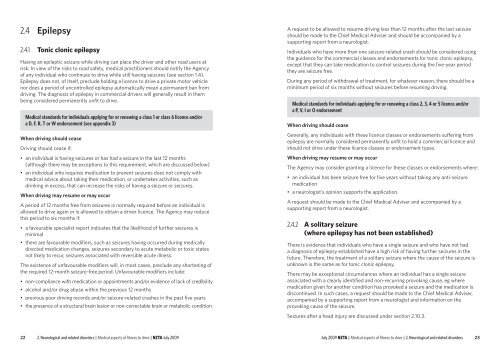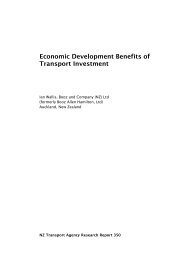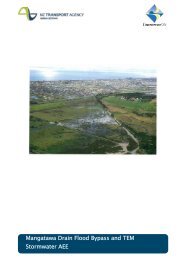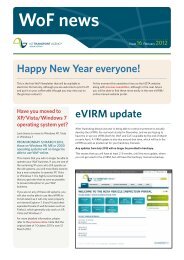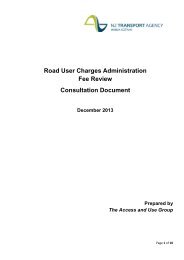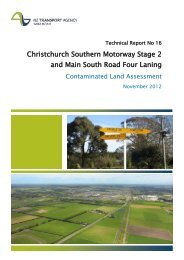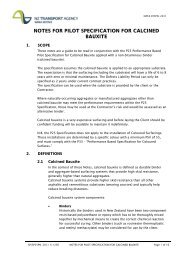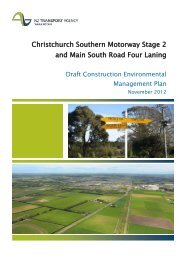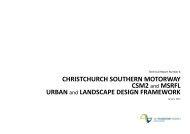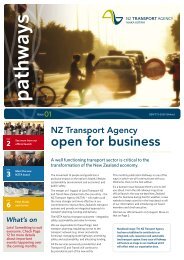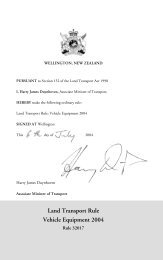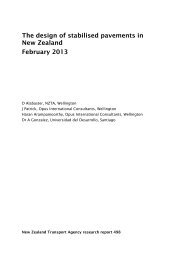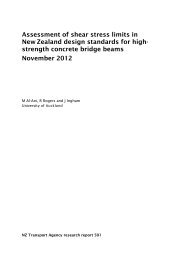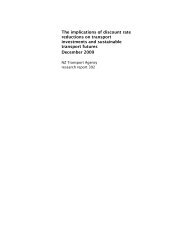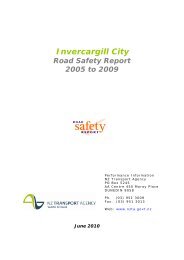Medical aspects of fitness to drive a guide for medical practitioners
Medical aspects of fitness to drive a guide for medical practitioners
Medical aspects of fitness to drive a guide for medical practitioners
Create successful ePaper yourself
Turn your PDF publications into a flip-book with our unique Google optimized e-Paper software.
2.4<br />
Epilepsy<br />
2.4.1 Tonic clonic epilepsy<br />
Having an epileptic seizure while driving can place the <strong>drive</strong>r and other road users at<br />
risk. In view <strong>of</strong> the risks <strong>to</strong> road safety, <strong>medical</strong> <strong>practitioners</strong> should notify the Agency<br />
<strong>of</strong> any individual who continues <strong>to</strong> <strong>drive</strong> while still having seizures (see section 1.4).<br />
Epilepsy does not, <strong>of</strong> itself, preclude holding a licence <strong>to</strong> <strong>drive</strong> a private mo<strong>to</strong>r vehicle<br />
nor does a period <strong>of</strong> uncontrolled epilepsy au<strong>to</strong>matically mean a permanent ban from<br />
driving. The diagnosis <strong>of</strong> epilepsy in commercial <strong>drive</strong>rs will generally result in them<br />
being considered permanently unfit <strong>to</strong> <strong>drive</strong>.<br />
<strong>Medical</strong> standards <strong>for</strong> individuals applying <strong>for</strong> or renewing a class 1 or class 6 licence and/or<br />
a D, F, R, T or W endorsement (see appendix 3)<br />
When driving should cease<br />
Driving should cease if:<br />
• an individual is having seizures or has had a seizure in the last 12 months<br />
(although there may be exceptions <strong>to</strong> this requirement, which are discussed below)<br />
• an individual who requires medication <strong>to</strong> prevent seizures does not comply with<br />
<strong>medical</strong> advice about taking their medication, or undertakes activities, such as<br />
drinking in excess, that can increase the risks <strong>of</strong> having a seizure or seizures.<br />
When driving may resume or may occur<br />
A period <strong>of</strong> 12 months free from seizures is normally required be<strong>for</strong>e an individual is<br />
allowed <strong>to</strong> <strong>drive</strong> again or is allowed <strong>to</strong> obtain a <strong>drive</strong>r licence. The Agency may reduce<br />
this period <strong>to</strong> six months if:<br />
• a favourable specialist report indicates that the likelihood <strong>of</strong> further seizures is<br />
minimal<br />
• there are favourable modifiers, such as seizures having occurred during <strong>medical</strong>ly<br />
directed medication changes, seizures secondary <strong>to</strong> acute metabolic or <strong>to</strong>xic states<br />
not likely <strong>to</strong> recur, seizures associated with reversible acute illness.<br />
The existence <strong>of</strong> unfavourable modifiers will, in most cases, preclude any shortening <strong>of</strong><br />
the required 12‐month seizure‐free period. Unfavourable modifiers include:<br />
• non‐compliance with medication or appointments and/or evidence <strong>of</strong> lack <strong>of</strong> credibility<br />
• alcohol and/or drug abuse within the previous 12 months<br />
• previous poor driving records and/or seizure‐related crashes in the past five years<br />
• the presence <strong>of</strong> a structural brain lesion or non‐correctable brain or metabolic condition.<br />
A request <strong>to</strong> be allowed <strong>to</strong> resume driving less than 12 months after the last seizure<br />
should be made <strong>to</strong> the Chief <strong>Medical</strong> Adviser and should be accompanied by a<br />
supporting report from a neurologist.<br />
Individuals who have more than one seizure‐related crash should be considered using<br />
the guidance <strong>for</strong> the commercial classes and endorsements <strong>for</strong> <strong>to</strong>nic clonic epilepsy,<br />
except that they can take medication <strong>to</strong> control seizures during the five‐year period<br />
they are seizure free.<br />
During any period <strong>of</strong> withdrawal <strong>of</strong> treatment, <strong>for</strong> whatever reason, there should be a<br />
minimum period <strong>of</strong> six months without seizures be<strong>for</strong>e resuming driving.<br />
<strong>Medical</strong> standards <strong>for</strong> individuals applying <strong>for</strong> or renewing a class 2, 3, 4 or 5 licence and/or<br />
a P, V, I or O endorsement<br />
When driving should cease<br />
Generally, any individuals with these licence classes or endorsements suffering from<br />
epilepsy are normally considered permanently unfit <strong>to</strong> hold a commercial licence and<br />
should not <strong>drive</strong> under these licence classes or endorsement types.<br />
When driving may resume or may occur<br />
The Agency may consider granting a licence <strong>for</strong> these classes or endorsements where:<br />
• an individual has been seizure free <strong>for</strong> five years without taking any anti‐seizure<br />
medication<br />
• a neurologist’s opinion supports the application.<br />
A request should be made <strong>to</strong> the Chief <strong>Medical</strong> Adviser and accompanied by a<br />
supporting report from a neurologist.<br />
2.4.2<br />
A solitary seizure<br />
(where epilepsy has not been established)<br />
There is evidence that individuals who have a single seizure and who have not had<br />
a diagnosis <strong>of</strong> epilepsy established have a high risk <strong>of</strong> having further seizures in the<br />
future. There<strong>for</strong>e, the treatment <strong>of</strong> a solitary seizure where the cause <strong>of</strong> the seizure is<br />
unknown is the same as <strong>for</strong> <strong>to</strong>nic clonic epilepsy.<br />
There may be exceptional circumstances where an individual has a single seizure<br />
associated with a clearly identified and non‐recurring provoking cause, eg where<br />
medication given <strong>for</strong> another condition has provoked a seizure and the medication is<br />
discontinued. In such cases, a request should be made <strong>to</strong> the Chief <strong>Medical</strong> Adviser,<br />
accompanied by a supporting report from a neurologist and in<strong>for</strong>mation on the<br />
provoking cause <strong>of</strong> the seizure.<br />
Seizures after a head injury are discussed under section 2.10.3.<br />
22 2. Neurological and related disorders | <strong>Medical</strong> <strong>aspects</strong> <strong>of</strong> <strong>fitness</strong> <strong>to</strong> <strong>drive</strong> | NZTA July 2009<br />
July 2009 NZTA | <strong>Medical</strong> <strong>aspects</strong> <strong>of</strong> <strong>fitness</strong> <strong>to</strong> <strong>drive</strong> | 2. Neurological and related disorders 23


